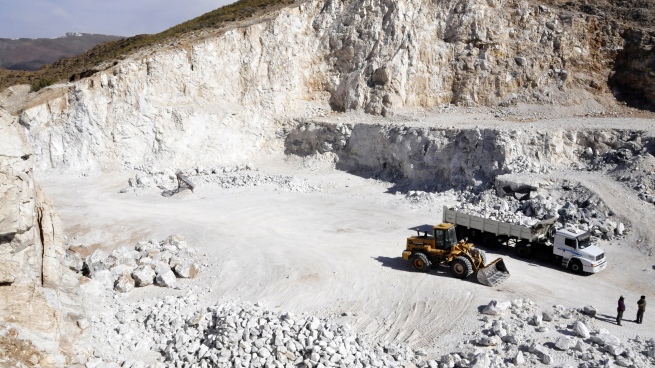The 80.8% of the billing of the great mining companies remain in the country via salary payments, shopping to national suppliers, taxes and profits of companies that were not remitted abroadwhile for every US$100 exported, US$68 ended up being a net generation of foreign exchange for the Argentine economy.
This is detailed in a working document prepared by the Center for Production Studies XXI (CEPXXI) on the mining in Argentinain which the entity that works within the orbit of the Ministry of Productive Development carried out a x-ray of the large metal mining companies based on the results of the National Survey of Large Companies of the INDEC.
The survey investigates multiple flow and stock variables in the 500 companies with the highest turnover in the country (excluding the agricultural and financial sector) and allows estimating, among other things, the remuneration to productive factors and helping to understand the contribution of large-scale mininga recurring question in public debate.
In this sense, it was highlighted that the vast majority of the billing of the large mining companies remains in the country since 19.2% of them go as payments abroad both in the form of direct and indirect imports of goods and services, payment of interest and remittance of profits.
On the other hand, 80.8% of the billing remained within the borders through salary payments, purchases from national suppliers, taxes and company profits that were not remitted abroad.
Likewise, given the highly exporting nature of large-scale mining, since 87.2% of the total invoiced is exported and –compared to other sectors–, the report stated that the relatively limited foreign exchange outflow for imports and investment income, for every US$100 sold, 68 ended up being a net generation of foreign currency for the Argentine economy.
67% of the sales of the large mining companies in operation is broken down into wage bill expenses (15.2%), taxes at different levels of government (11.4%) and local suppliers (40.5%, here already imports embedded in these are discounted), detailed the report.
When the net disposable income of companies not remitted abroad (12.9%) is added to this, it reaches 79.8%, a figure very similar to the 80.8% that remains in the country according to the transactions approach. with the outside.
The profits of the companies, meanwhile, are equivalent to 18.1% of the billing, and are made up of 12.9% of the net disposable income that remains in the country and 5.2% as distributed dividends (which are assumed as mostly sent abroad).
The report also breaks down the characteristics of investment, productivity and wages in mining, which allows it to state that it is a highly capital-intensive activity, which requires large investments mainly for construction and, more secondarily, for machinery. and equipment, where a good part of the imports of mining firms are concentrated.
As a result of this, it is explained that out of 220 branches of activity, mining ranks ninth in terms of fixed capital per firm, with a value 55 times greater than the average for the economy.
The high intensity of capital in turn explains the very high relative productivity of metal miningwhich in turn is a determining factor (not the only one, since specific union dynamics also have an impact) when it comes to explaining why the wages of the activity are among the highest in the entire economy.
The sector ended 2021 with a figure of more than 33,000 direct formal jobs in its different segments (metallic, non-metallic, lithium, coal and direct support services), the highest level since there is a record.
In this sense, it was assured that the mining sector has significant growth potential in terms of regional development and suppliers, while at the same time being an important contributor of foreign currency through exports and foreign direct investment.
In particular, metal mining is also a very relevant sector in terms of formal employment, particularly in provinces far from the central zone of the countrythe most developed, and salaries, as it is, along with hydrocarbons, the activity with the highest salaries in the entire economy.
A particular characteristic of the activity is the high participation of services in its intermediate demand, representing 81.6% of the intermediate consumption of mining. For its part, the purchase of intermediate goods represents 18.4%.
Given that in services production and consumption tend to be carried out simultaneously, the consumption of productive services in the territory involves a notable impact in terms of the development of local suppliers.
88.7% of the amount of purchases of productive inputs – both goods and services – is made from local suppliers, while the remaining 11.3% is made up of imports








